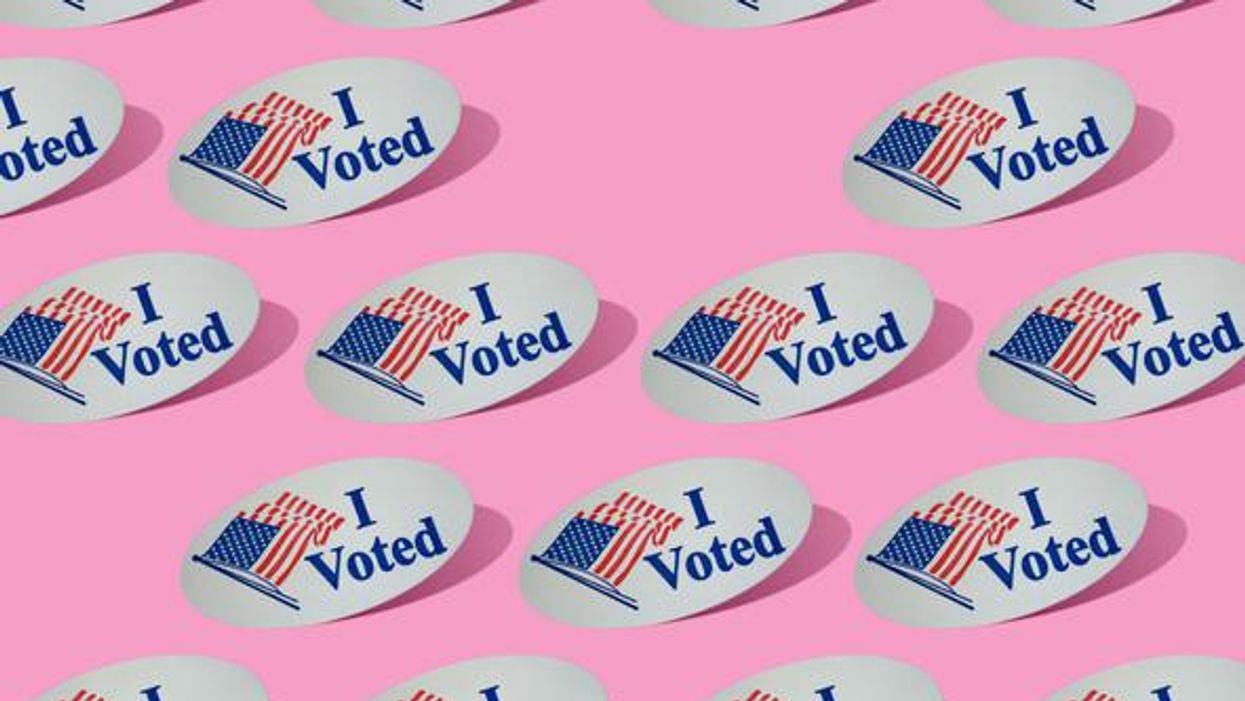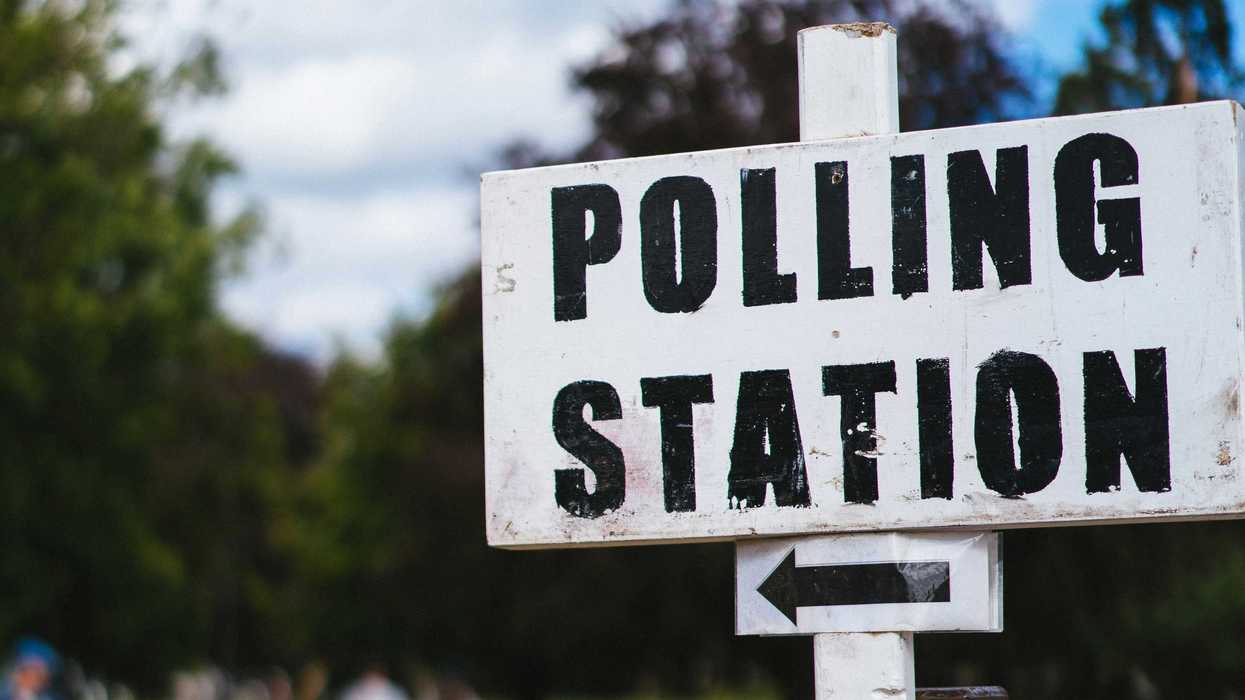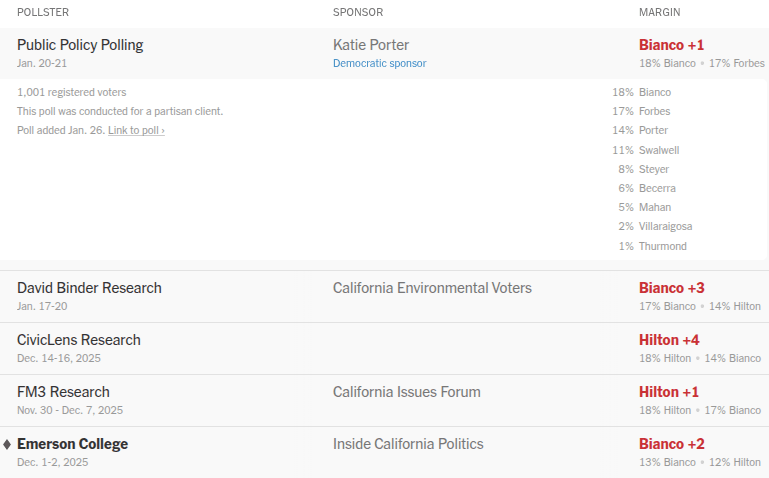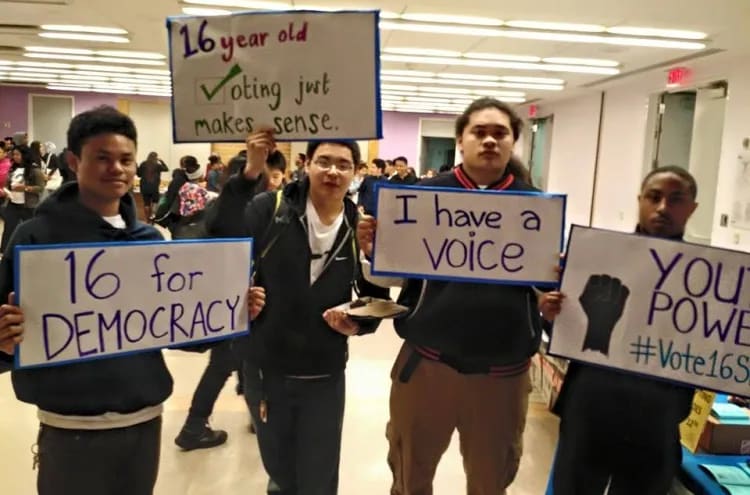This summer marks the 50th anniversary of the passage of the 26th Amendment which lowered the voting age to eighteen on July 1, 1971. As the fastest ratified Amendment in U.S. history – going from proposal to law in just three months and 8 days – this important milestone for voting rights demonstrates the effectiveness of youth activism throughout our history. As we look back on the passage of this Amendment, what can we learn from the past?
Made By Us sat down with Jon Grinspan, curator at the Smithsonian's National Museum of American History, and Catie Macauley, a 16-year-old youth voting advocate from Vote16 USA, a campaign from Generation Citizen aiming to lower the voting age to 16, to find out.
Made By Us: When did the push to lower the voting age really start?
Jon Grinspan: From the 1840s to 1900, young people were the fuel of politics. The voting age was 21, but campaigning back then was really labor intensive. So, naturally, the foot soldiers of the political campaigns back then were 12 to 18 year-olds who were doing all the unpaid work.
During World War II, when the U.S. government lowered the military service age to 18 and men still couldn't vote for another three years, that became a huge motivator. The slogan of the new voting rights movement was, "If you're old enough to fight, you're old enough to vote."
MBU: So if young people couldn't vote, why were they motivated to speak out?
JG: Politics back then were really social for both the people who could vote and the people who couldn't. Young people made friends, they courted and flirted at rallies. It was a way many people would meet their spouses, back then. There are all these examples of women turning down the proposals of guys who voted for the wrong party! There were also individual benefits— a sense of maturity, connections, the feeling that you're helping out your community and helping to govern the country
MBU: Catie, do you think your level of activism is rare among your peers, or is it becoming more common that young people have this kind of exposure to politics?
Catie Macauley: I think that there is a bit of a misconception that all of Gen Z are super into activism. But I also think it's a misconception that only a few big names in the media are involved. The truth lies somewhere in the middle. In a lot of cities, I've seen people my age involved in all areas of activism. But in rural areas, it's not super widespread.
MBU: If some of today's hot-button causes are mental health and climate change, what were some of the top issues that drove youth involvement in the past?
JG: There were young people throughout American history who cared deeply about immigration, who came from immigrant backgrounds and wanted to assist their communities. But then there were also young people who came from immigrant backgrounds who wanted to close the door behind them— like the No Nothing movement, which was a nativist, anti-immigrant movement that was largely made up of young people. There were young people who were campaigning for abolition and for Black voting rights, but at the same time young people were the core of the first KKK and the movement to secede the Confederacy.
Young people were also sometimes fighting over issues you wouldn't imagine any 18-year-old would care about. For example, tariff reform was a huge issue in the 1880s. It sounds so dry and so boring, but there were people killing each other in the streets of American's tenements over tariff reform.
MBU: Do you think that today's generation, Gen Z, is among the most engaged generations we've seen in U.S. history?
JG: There's a lot of evidence that shows that Millennials and Gen Z are more engaged and are better informed than their parents or grandparents. But are they as engaged as people who were running campaigns on the ground in the 19th century? Well, it's different. Gen Z'ers are not as actively engaged in the same kind of physical campaigning, but they're voting at a younger age than their predecessors.
MBU: Today's young people are growing up with a unique set of challenges— from the pandemic to technology to climate change. Catie, do these factors affect your outlook?
CM: Yes. There is a heavy existential burden that we carry knowing that when we grow up, we're going to have to fix problems we didn't create. We've had to grow up quickly— that's part of what makes us so ready to vote. We're living life in a different way than any other generation of 16-year-olds has.
MBU: Flashing back to 1971, what made politicians agree to lower the voting age to 18?
JG: It just made sense to most people. This is a period when young people were having kids, getting married, fighting in wars, starting businesses— why shouldn't they be able to vote? Politicians saw these young people as a huge, untapped bloc of voters that they could win over to their side. Richard Nixon wasn't the young person's best friend, but he could see an angle where it could benefit him, like if it mobilized young conservatives.
MBU: So there wasn't a broad concern that lowering the voting age would dramatically shift political party numbers?
JG: Both sides saw a potential benefit to them. We tend to associate most of the youth movements of that time with the left wing. But there was also anger and frustration among conservatives who felt like young Republicans weren't being represented in the popular culture that was so focused on hippies and protesters.
MBU: Catie, what's the argument against lowering the voting age today?
CM: One argument is that people think 16-year-olds aren't mature enough. But neuroscience actually disproves that. There are studies showing that we use a brain function called "cold cognition" for voting. The opposite of cold cognition is hot cognition. Our prefrontal cortexes, which control our decision-making in hot cognition situations, aren't fully developed. But the parts of our brain that we use for cold cognition are.
The other argument is that 16-year-olds are going to vote stupidly. But there's always going to be stupid people! In the 2016 election, there were 11,000 write-in votes for Harambe, a gorilla who was shot at a zoo. There are always going to be people who throw away their vote, and that's their right in a democracy.
There's also an argument that 16-year-olds will always copy the votes of their parents. It's a bogus argument, because if 16-year-olds will only vote the way of their parents, isn't that going to be true for 18-year-olds? For 20-year-olds?
Another argument is that lowering the voting age is going to make everybody more Democratic. But generations fluctuate, parties swing back and forth. We are more progressive right now, that's an inescapable factor of our generation. But generational change is the nature of democracy.
MBU: One thing we know about civic engagement is that it's a lifelong practice - and starting early is important, whether by voting or through other avenues of good citizenship.
CM: It really is about building a habit. There's studies that have shown that if you vote in one election, you're more likely to vote in the next. Another argument against lowering the voting age is that 16-year-olds don't know enough about the legal system or civics. But that problem doesn't magically go away when they turn 18! If 16-year-olds have the vote, then it might actually make our legislators realize that we need a mandated civics curriculum in our schools. That would lead to a more informed electorate overall, which is much better for the entire country.
MBU: What were some of the arguments for or against lowering the voting age to 18 in the 1960s?
JG: The big argument for it was: If you're drafting us to go fight in the war, but we can't vote for or against it, that's a fundamental disconnect in democracy. Young people were getting engaged and married at 18, having kids at 18— they were responsible for raising the next generation, but they couldn't vote?
I don't think there were arguments against it. There were just some people who hated the idea and held it up in Congress for 20 years.
MBU: Do you think the pandemic has catalyzed the Vote 16 movement today, Catie?
CM: I'm hoping that a combination of the pandemic, the climate crisis and the disintegration of democracy is what will finally wake people up and make them realize that the way that we're living isn't sustainable.
I would love in a few years to make lowering the voting age a core debate point in elections, just like we talk about Medicare For All. We have a lot of legislators who are on our side, but if it becomes something that people on the presidential and in their daily lives start talking about— that's where the real change is going to happen.
MBU: Thank you both for a dynamic conversation linking the past and the present!
Edited by Cameron Katz
Originally from Tampa, Florida, Cameron Katz recently graduated from Emory University with a double major in History and English Creative Writing. She recently completed a history honors thesis about felony disenfranchisement in Florida and is interested in social justice, reading fiction, and digital art.
About Made By Us
Made By Us is an unparalleled collaboration between over 100 of the nation's history museums to better engage Millennials and Gen-Z with American history to inspire, inform and empower civic participation. Led collectively by the Smithsonian's National Museum of American History, Monticello, the National Archives Foundation, the First Americans Museum, Atlanta History Center, HistoryMiami Museum, Heinz History Center, New-York Historical Society, the Charles H. Wright Museum of African-American History, and Missouri Historical Society, Made By Us creates programs and digital platforms to connect young people in every corner of the nation with our shared past, present and future. For more information, visit historymadebyus.com.
About the Civic Season
Brought to you by Made By Us and Civics Unplugged, along with 200 history and civics organizations nationwide, the Civic Season is an emerging new tradition held between June 14 and July 4th, driven forward by the keepers of our nation's stories and the generations writing the next chapter.. Together, we'll explore a fuller picture of the past, flex our civic muscles in our communities and social spaces, and create a new tradition of civic participation that better reflects our complex story. Visit TheCivicSeason.com to learn more.






















